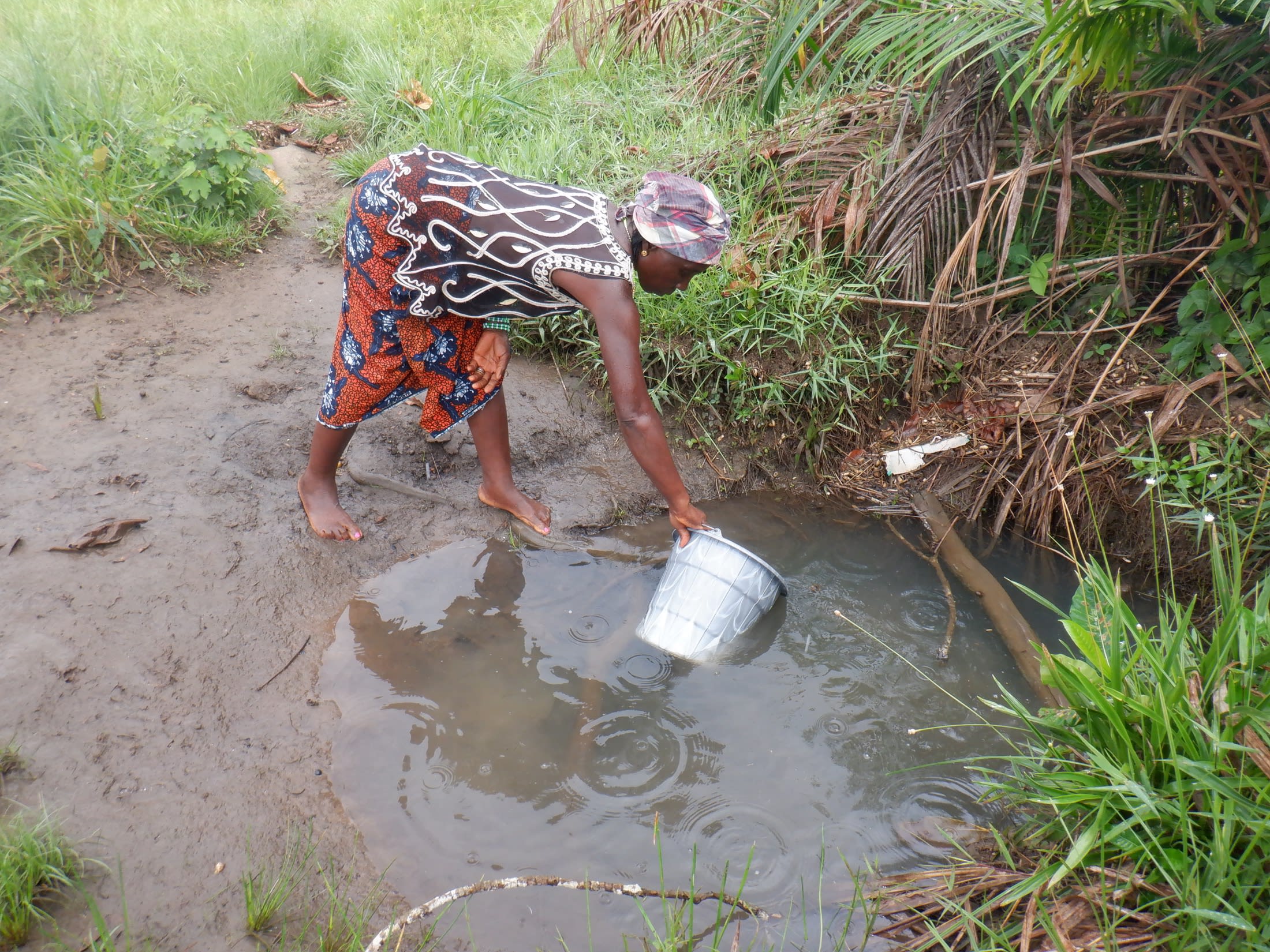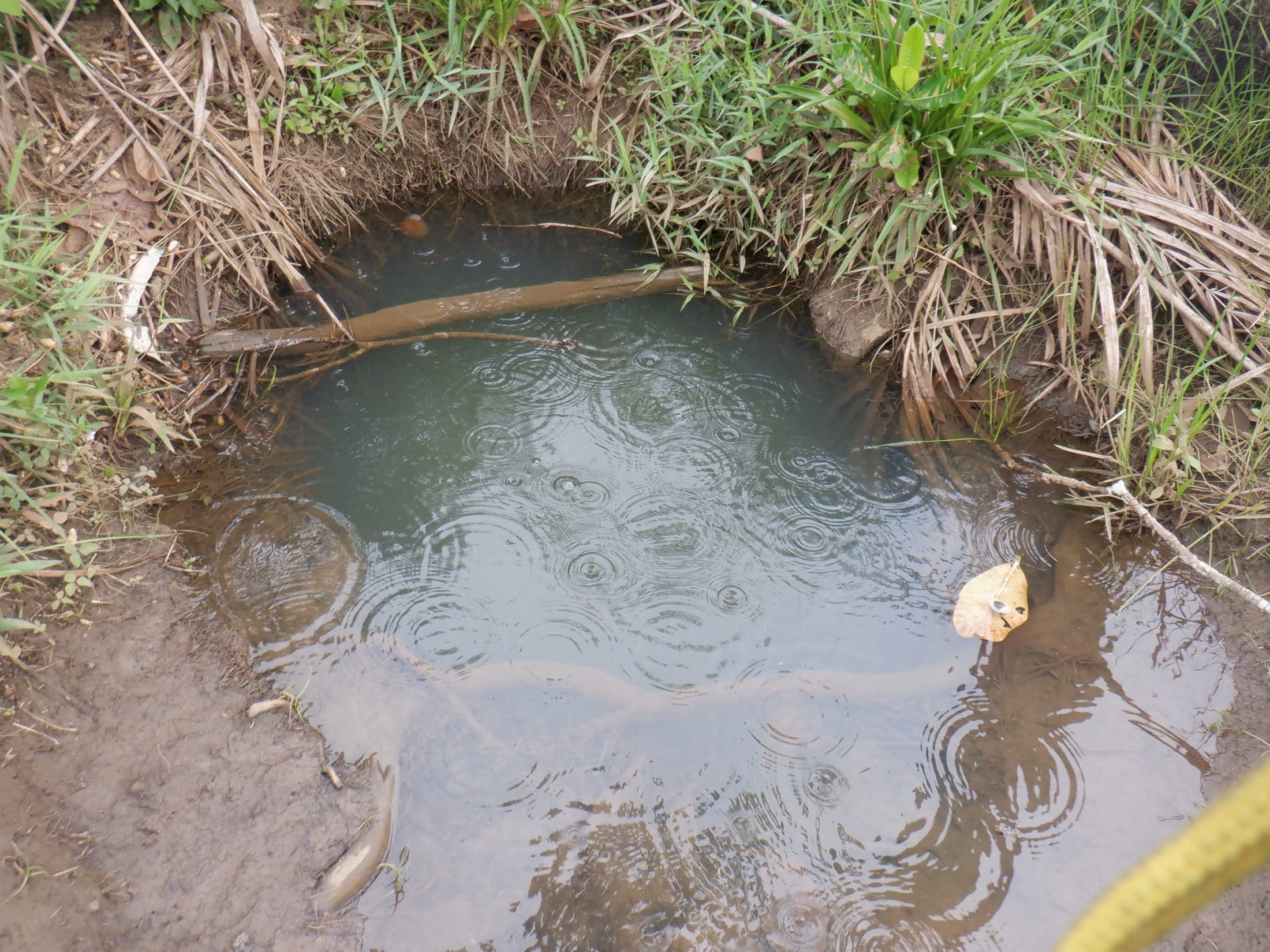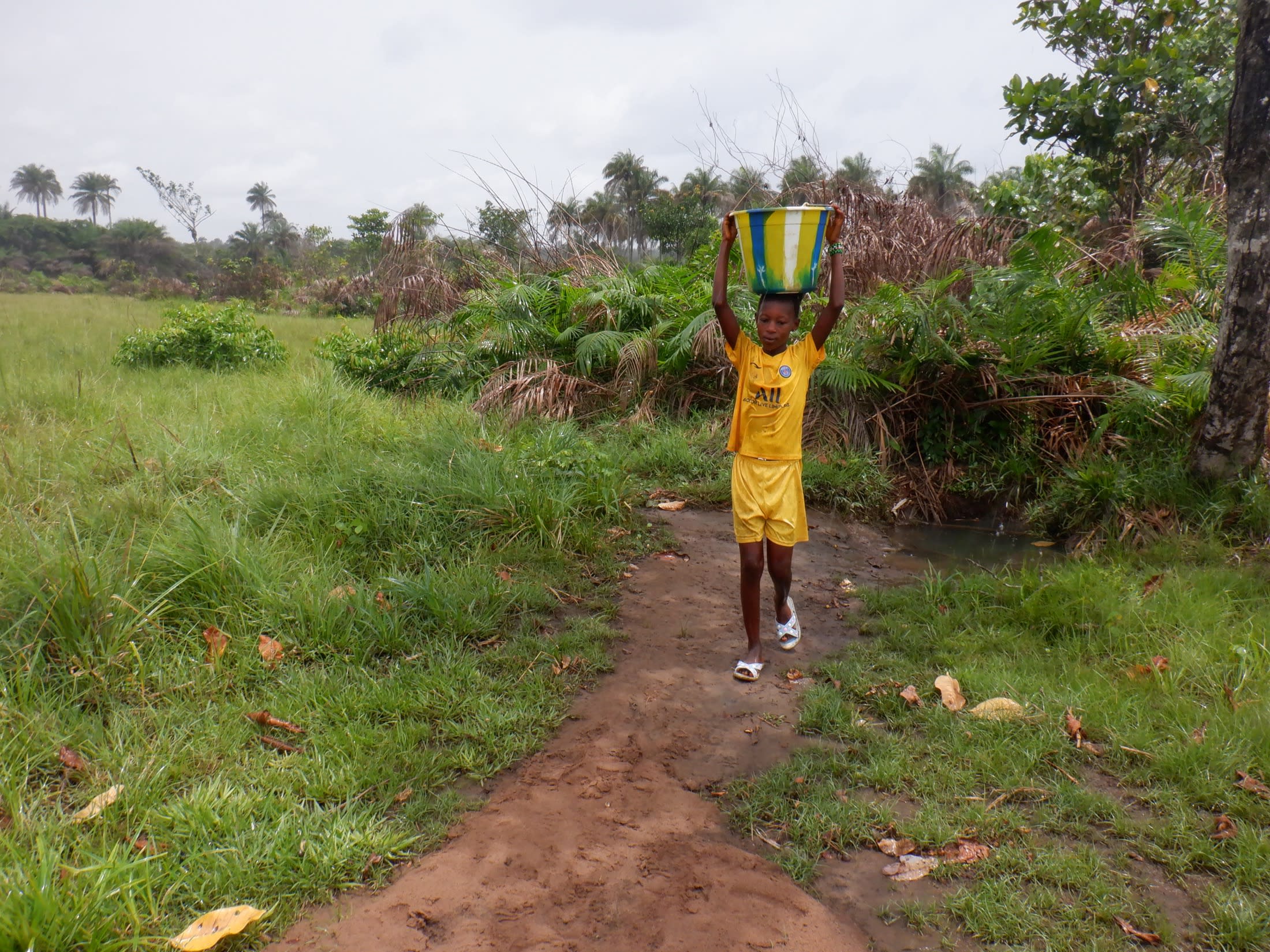The 60 people in the community of Malokoh can only rely on the local swamp to meet their water needs, which makes it nearly impossible to collect sufficient water for drinking, prayers, income-generating projects, and domestic tasks.
The swamp is far away, and it takes too much time to make one trip, let alone the several needed for each household daily.
"It is difficult for me to fetch enough water for domestic purposes, especially when I am about to process palm kernel and even to bathe or hold ablution for prayers. I really feel it," said 55-year-old farmer Nandawah Bangura, shown below at the swamp.

"I cannot get access to clean water. The water source we use to fetch [from] is not pure, [but] we have no option but to drink from it," continued Nandawah. "After fetching water to drink, I allow the water to settle for [a] few minutes before using it to drink and cook. That also delays my cooking time."

After letting the water settle, it may look cleaner, but Nandawah knows it doesn't solve the contamination issues. "This causes [us] to be prone to waterborne diseases such as diarrhea, typhoid, and dysentery," she said.
"I believe that the water I use to drink is not safe and pure to drink," said 12-year-old Masiray Y. when describing the swamp water.

As an all-Muslim community, the people are also very dedicated to their local mosque, Ahmadiyya Mosque. In Islam, mosque attendees perform five prayers a day and are also called on to perform ablutions each time, where they wash their hands and faces with water. However, this is no easy feat with the area's ongoing water crisis. Community members must ferry water from the swamp constantly for themselves as well as any other visitors to the mosque.
"[Ahmadiyya] is the only mosque in the community [where] they must do their prayers," said field officer Moses. "The community is purely a Muslim community. They always do their five daily prayers. Some of them will leave the work they're doing just to do their five daily prayers."
"When it comes to fetching water, I feel annoyed because I think the distance to fetch water is [too] far away from the community," said Masiray. "Also, it is hard to make a single trip because the road the water source is slippery with potholes. When it rains, the water source surroundings [become] over-flooded, which is [risky] for me to fetch water. I [have] a difficult situation because of the water challenge in my community."
With a water point of their own, the community members in Malokoh will hopefully have the freedom to collect water that they know is safe. The endless burden of fetching water for the mosque will vanish as we plan to build the community a well on the mosque grounds, which is centrally located so everyone can carry out their everyday tasks and attend to their spiritual needs without stress.
What We Can Do:
New Well
Where we will be drilling is centrally located and will relieve many people of the long journey to fetch water and the challenge of accessing clean water.
Our team will drive over the LS200 mud rotary drill rig and set up camp for a couple of nights. Once the well is drilled to a sufficient water column, it will be cased, developed, and then tested. If these tests are positive, our mechanics will install a new India Mark II pump.
By drilling this borehole, Lokoya and the surrounding community will be provided with plenty of accessible, clean drinking water.
Training
There will be hygiene and sanitation training sessions offered for three days in a row.
Community members will learn how to make a hands-free handwashing station called the "tippy-tap." We will use these tippy taps for handwashing demonstrations and will also teach about other tools like dish racks and the importance of properly penning in animals. We will highlight the need to keep restrooms clean, among many other topics.
This training will also strengthen a water user committee that will manage and maintain this new well. They will enforce proper behavior and report to us whenever they need our help in solving a serious problem, like a pump breakdown.






 Borehole Well and Hand Pump
Borehole Well and Hand Pump
 Rehabilitation Project
Rehabilitation Project
























